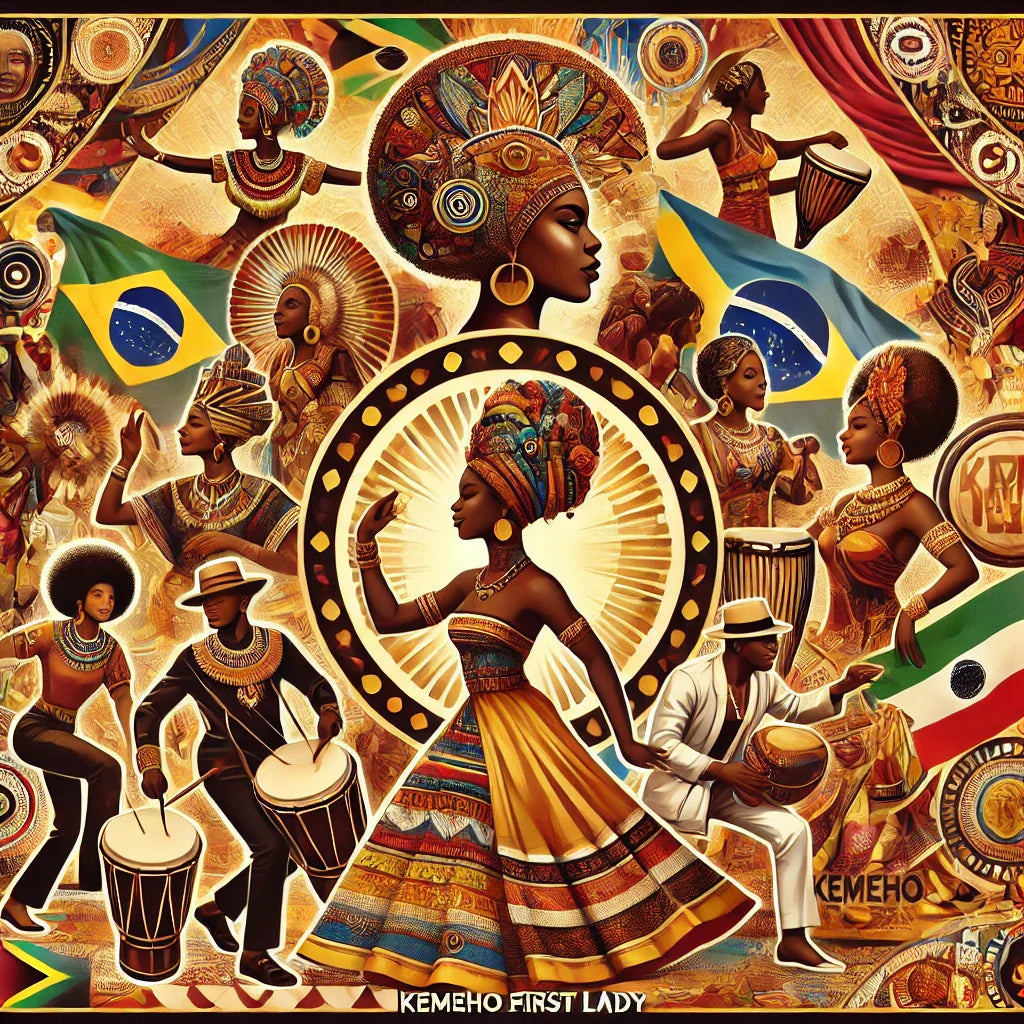
Black Latin Americans: History, Culture, and Contemporary Realities
Share Label
The African presence in Latin America is not just a forgotten chapter of history; it is deeply rooted and ever-present. From Mexico’s coasts to the landscapes of Colombia and Peru, Afro-descendants have left an indelible mark on the continent through their culture, spirituality, and struggles for justice. Despite their invaluable contributions, Black Latin Americans continue to face socio-economic challenges and erasure from national narratives.

- The History of the African Diaspora in Latin America
From the 16th century onwards, Spanish and Portuguese colonial empires forcibly transported millions of Africans to Latin America to labor on sugar plantations, in gold mines, and as domestic servants.
- Brazil, Cuba, Colombia, Peru, and the Dominican Republic were among the main recipients of enslaved Africans.
- Unlike in the United States, many Black communities in Latin America intermarried with Indigenous and European populations, creating a unique cultural diversity.
- Even after slavery was abolished in the 19th century, Afro-Latinos continued to experience marginalization and discrimination.
- Afro-Latin Cultures and Traditions
Africa’s legacy is deeply woven into Latin America’s music, religion, and popular traditions.
Music and Dance
- Cumbia (Colombia) and mapalé have African rhythmic roots.
- Merengue (Dominican Republic) and salsa (Cuba and Puerto Rico) emerged from Afro-Caribbean beats.
- Bomba and plena in Puerto Rico originated from plantation work songs.
- The Argentine tango, often seen as European, was influenced by African rhythms.
Afro-Descendant Religions
- Santería in Cuba, Umbanda in Brazil, and Vodou in Haiti have African spiritual origins.
- These faiths blend African, Catholic, and Indigenous elements, preserving the resilience of enslaved Africans.
Historic Afro-Latin Communities
- Palenque de San Basilio (Colombia): A village established by escaped slaves, still inhabited by their descendants.
- The Garifuna (Honduras, Belize, Nicaragua): An Afro-Indigenous people descended from shipwrecked Africans.
- Quilombos (Brazil, Peru, Ecuador): Former hideouts for escaped slaves, some of which remain active today.
- The Contemporary Realities of Black Latin Americans
Despite their cultural and demographic significance, Afro-descendants in Latin America face ongoing challenges:
Invisibility and Lack of Recognition
- In many countries, Afro-Latinos are underrepresented in media, politics, and historical narratives.
- In Argentina, the myth of a “white” population long denied the existence of Afro-Argentines.
Poverty and Discrimination
- Black communities are disproportionately represented among the lower economic classes and rarely seen in leadership positions.
- Socio-economic inequalities are stark, with limited access to education and employment.
Violence and Police Brutality
- In Colombia and Brazil, young Black men are often the primary targets of police violence.
- The criminalization of Black populations in favelas and poor neighborhoods is a persistent issue.
- Recent Struggles and Achievements
In response to these injustices, Afro-Latino movements are fighting for recognition and equality:
Racial Inclusion Policies
- Affirmative action policies in Brazil and Colombia have increased university access for Black students.
- Black culture celebration days, such as Brazil’s National Black Awareness Day, have been established.
Emerging Black Leadership
- Figures like Epsy Campbell Barr (Costa Rica), the first Afro-Latin vice president, and Francia Márquez (Colombia) advocate for racial equality.
- In the cultural realm, artists like Tego Calderón (Puerto Rico), ChocQuibTown (Colombia), and Daymé Arocena (Cuba) spotlight Black heritage.
A Resurgent Identity
- The Afro-Latino movement has gained traction on social media, promoting Black beauty and cultural pride.
- Natural hair and African-inspired fashion are increasingly celebrated within Black Latin American communities.
Conclusion
Black Latin Americans carry a profound heritage of resistance, creativity, and cultural contributions. Yet, they continue to strive for recognition and equal rights. Today, Afro-Latin pride is more vocal than ever, reminding the world that Latin America is also Black, and its history cannot be told without its Afro-descendant peoples.









